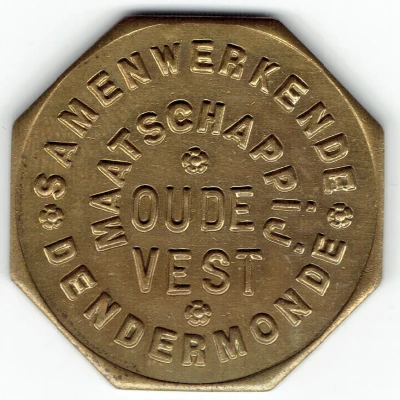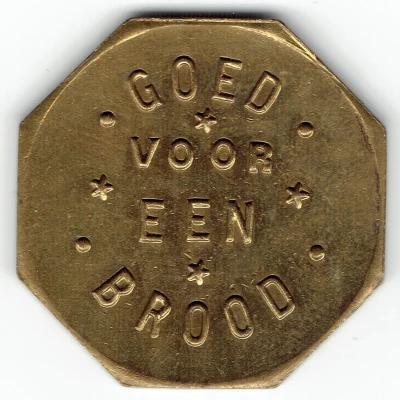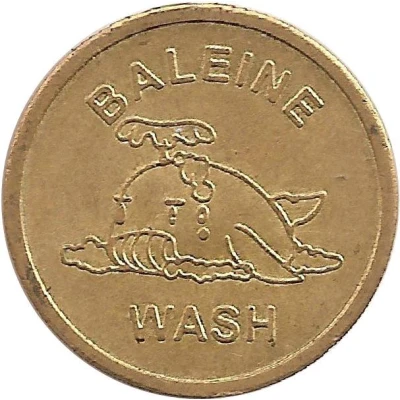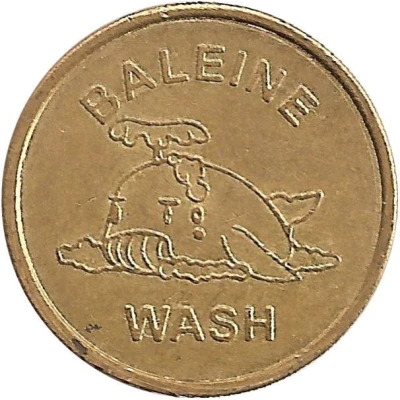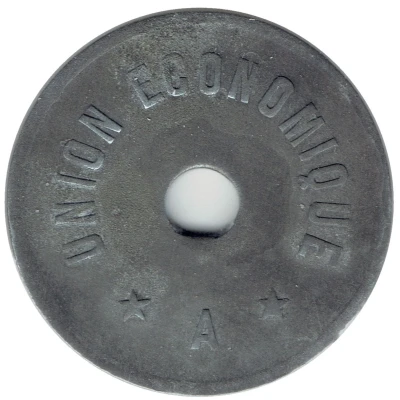
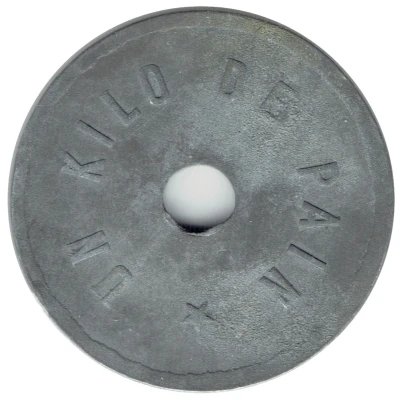

Bread token - Union Economique - 1Kg of Bread ND
| Zinc | - | 24 mm |
| Location | Belgium |
|---|---|
| Type | Trade tokens › Co-operative tokens |
| Composition | Zinc |
| Diameter | 24 mm |
| Shape | Round with a round hole (Center hole 4 mm) |
| Technique | Milled |
| Orientation | Medal alignment ↑↑ |
| Demonetized | Yes |
| Updated | 2024-11-13 |
| Numista | N#412368 |
|---|---|
| Rarity index | 97% |
Reverse
Arranged in a circle, around the hole:
UN KILO DE PAIN, a five-pointed star at the bottom to mark the beginning of the text
Script: Latin
Lettering: UN KILO DE PAIN
Translation: 1KG. OF BREAD
Edge
Plain
Comment
Background information on the Belgian cooperatives (in French): https://levainbio.com/cb/crebesc/bruxelles-jeton-de-pain-de-lunion-economique/
Translation in English (with the information about the Union Economique underlined):
"The Economic Union is a cooperative of public administration personnel, based in Brussels.
Cooperatives in Belgium: Here is Bernard Lavergne's opinion on the late birth of Belgian cooperatives: "Belgium is probably the country in the world which has felt the French influence most strongly and there is no doubt that at the point from a cooperative point of view, this influence was particularly harmful to it. The cooperative movement expressed itself there as late as in France, the Belgian working class only converted to cooperation in 1880. However, for many years, economic circumstances and the social environment made particularly easy to adapt and develop the cooperative principle in Belgium”
“From this time, the characteristic feature of Belgian cooperation began to clearly emerge: every cooperative organization in Belgium takes on a political character.”
1 – Cooperation of the socialist tendency;
2 – The cooperation of the Christian tendency and the birth of social Catholicism;
3 – Cooperation of the neutral tendency.
The staff cooperative association was founded in 1881 by some officials from the Ministry of Public Works. Aimed at spreading cooperation among civil servants, it disappeared under pressure from the Ministry. It was only really in 1886 that several neutral cooperatives appeared thanks to the creation of the Belgian Railway Staff Association. The first two cooperatives were established respectively in Ledeberg and Marcinelle. Between 1886 and 1890, 13 other cooperatives were launched, including the Brussels Economic Union; 25 additional companies appeared before 1914. The Brussels Economic Union became the largest neutral cooperative. Starting with 2,600 members, it had more than 6,000 twenty years later. Managed by intellectual workers, the spirit of order and economy was more rigorous than in the socialist cooperatives. However, despite the modest salaries of most state agents, state personnel, feeling superior to workers and refusing to be assimilated to the class of manual workers, refused to obtain supplies from these cooperatives. "
